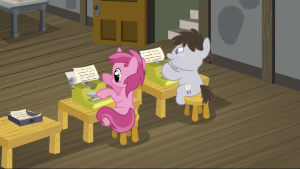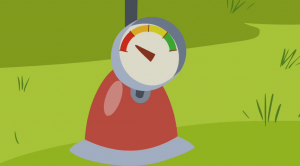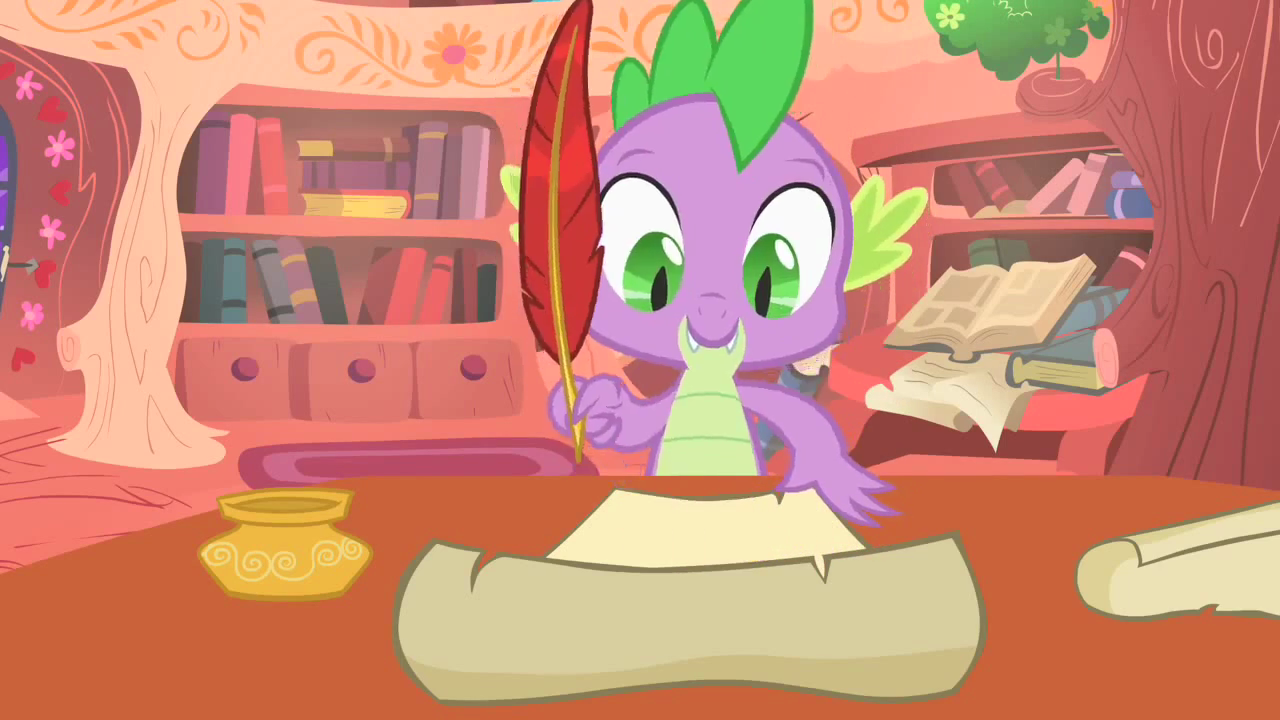Posts Tagged "gimmicks"
How To Do a Kickstarter (Short Version)
I hate most crowdfunding. It’s not really that I have a problem with the concept, but most people irritate me with they way they ask for my money. It’s like you’re asking ME for money so that you can start a business in which you keep making money, and I get an overpriced ______. So you should at least try to seduce me a little and not just be a bunch of annoying, entitled 20 something year olds. Show me that you care. Show me this is real. Show me that I’m not just a sucker and a means to an end. Make me feel like I’m a part of something special, not just something special to you, but to me and the rest of the world.

“Here, I’m giving you 2 bits for your project. Please don’t hate me. I’d give you more, but Wells Fargo lent me that money so I can go to school.” -Me every time I donate to a friend
How do you do that? Here are some Cliff Notes that should help. Later I’ll do a more expanded post focusing on the videos, perks, & e-mails.
Image
1. Look like you’re serious (If your project is fun, show that you’re serious about fun).
2. Look like you’ve actually put some of your own money into this project (at least INVEST IN YOUR VIDEO!)
3. Look like you would actually invest in this project yourself.
4. Look like you aren’t just asking someone to pay the rent and buy you Taco Bell while you make art.
Ethics
1. Don’t look like you’re trying to get other people to cover your investment costs while you reap all of the benefits.
2. BE FAIR TO THE PEOPLE GIVING YOU MONEY!
3. Be appreciative of ANY donation.
Sales
1. Don’t pan handle. A donation should get the donor (no matter how small) something if possible. Ideally use advance sales of the product or discounts towards purchases of the product.
2. Give people something they would want.
3. Explain to people why your project is something they should believe in and support.
4. If you can, your perks can be used to endorse your product (ie. Free trials, posters, stickers, etc.)
So I have to say, my friends Niree Perian, Susannah Luthi, and Kai Chan have done a textbook PERFECT job in all of these criteria with their crowdfunded project of Connu. You don’t have to donate (though you should if you can) but at least look at how well executed their campaign is and use this as a model for your own projects.
More:
How To Do a Kickstarter: Sharif Acts Like Don Draper on an E-Mail (Public Relations)
How To Do a Kickstarter: Perks
How To Do a Kickstarter: E-Mails
How To Do a Kickstarter (Short Version)
Underrated Never Talked about Skill for Writers: A Rambly Sort of Thing
Today in class I started bringing up theory again. Recently I’ve noticed my professor looks at me and smiles when I bring up some obscure topics and essays (I don’t know if she did that all semester or just felt nostalgic because today was the last day of class). This time it was a piece by a Korean feminist talking about masculinity in oppressed cultures. She said to me, “I’m always amazed by what you can bring to the conversation.”
Later tonight I went to visit a friend in the hospital. A week earlier she was just an acquaintance. In the hospital I argued with a nurse about why her pain wasn’t being managed and why the doctors seemed to think post-op pain of a 9 out of 10 was “normal” and didn’t need treatment. My mom was a pain management nurse and now teaches nursing at a university. I learned the lingo. I learned how to ask for drugs without seeming drug seeking. I learned how to advocate for my friend.

“I have a manipulative speech ready that will get you so many pain meds that you’ll need pain inducing drugs just to keep you on the pain scale. Crap, I think your charge nurse heard my soliloquy.”
On the drive home I thought about my teacher’s words. I realized something I decided was probably the biggest gift to myself.
I came up with two rules for myself:
1. Whenever I didn’t know something, I would ask about it.
This includes what words mean, things I claim to be an expert on, and things that people would probably prefer not to talk about.
2. I would let people talk to me about any subject.
I let my cousins and some of my friends teach me about cars. I’ve let my sister (a women’s health nurse) teach me about different speculum, benefits of clear plastic over metal, and that some of them have lights. My mom taught me about pain management in hospitals. I’ve had people talk to me about all kinds of subjects from Apple products to humor theory to rollercoasters to Wutang Clan.
If you don’t want to hear about something, it’s probably, because you don’t know enough to appreciate it.
These rules will help you develop a sense of curiosity and wonder for the human creature. Something that should show up in your writing.

This is from my lecture notes last fall when my Professional Writing Core teachers were explaining that curiosity and wonder are at the center of all art.
Now people will go out and people watch. Wonderful activity, but also very shallow and superficial. You’ll only get the surface without context. If you talk to a person, they will teach you about entirely new ways of seeing the world, maybe these ways aren’t always positive. Of course this is granted they even want to talk to you.

“Aaah! A humanities major working retail! Get your low income potential and broken dreams away from me!”
“That’s interestin’ and so tellin’ about yuh social background, upbringin’, ideologies, and yuh way of life.”
Most people want to talk about things. Some people will even talk to you about the worst tragedy to ever happen to them. More people will tell you these things if they feel you’ll listen and understand.
I won’t tell someone to stop talking. I’ll interrupt, because I’m so excited about the conversation, but I won’t tell them to stop talking.
It’s beautiful. The human being. I was with a girl and angry at the world. I said, “I have never felt so misanthropic.”
She laughed (and not just at how angsty I was being), “You’re not a misanthrope. You’re an anthropologist. I’ve never seen someone so in love with people.” This was a surprise to me. I didn’t realize this was true. I also didn’t realize she could ever show this level of understanding about me. At least I used to think that. It must be untrue since I fell in love with her.
Talking to people, reading their blogs will expand your mind more than anything (Even if it’s starting to get unfocused, rhapsodize-y, and digressive). You’ll never know what you’ll learn and from where. Did you think you would find a passionate, sincere, intellectual blog about the human condition with a bunch of ponies on it?
I’ve talked to a drunk punk rock bassist in the Inland Empire about his view on the world, it was disparate from the views of a privileged girl I talked to in Orange County, but there is always confluence. We want the same things: love, respect, to feel special, safety, etc.
We all have the fear of time and being mortal adding pressure on our desires. From this is conflict. From this we do our worsts to each other and even our bests. When written with justice to the characters, this conflict will allow you to see yourself in the worst of people as well as the best. We are all the same, it’s the priorities and the situations that make us different, whether by nature or nurture.
There’s a price to this, the more you learn what people want and their motivations, the harder it is to judge them. Although, this seems positive, keep in mind that these people will make you mad. They will hurt you. You will feel mad and stay awake at night. You’ll wish you were just wondering why they would do something to hurt you, but you’ll know why. You’ll know their motivations, what they want in life. You’ll know that if you were them, desperate for the same petty things, then you would hurt other people for them as well. It would be hard and wrong for you to hate them for being who they are. So you don’t take any action, even though you’re hurt.
With this understanding there’s nowhere for your hate and frustrations to go. You’re stuck with them.

“I understand that her belief system doesn’t allow for the idea of platonic friendships between people of opposite genders, but that doesn’t mean she is entitled to treat me like a second class citizen even if she is trying to keep me from ‘falling for her.’ God that’s so egotistical, it’s sick, but then that belief has probably just been reenforced by a lifetime of being a pretty girl and having every guy friend fall in love with her, requiring her to explain why things wouldn’t work out. The poor girl probably lost a lot of friends growing up. Man this sucks that her past is determining why I don’t get to have my friend! After all the times I’ve looked out for her! Well, this might be her form of looking out for me and my feelings… Why am I always the expendable one?! I hate this.”
Sorry, where was I? Oh, yeah, people will reveal more to you than they realize. They will tell you their ideologies, their secrets, their experiences even if they don’t intend to. And isn’t understanding how other people think and act what character work is all about?
That’s not necessarily a rhetorical question. Let me know how you think about anything I’ve brought up. Clearly, I’m interested.
PS. For more on this subject read Virginia Woolf’s short story “An Unwritten Novel” to get the value of people watching and some of its drawbacks. For the benefits of talking to people and how you can learn things about their character that they themselves don’t even realize they are saying read Robert Browning’s “My Last Duchess”
Read MoreThe Not Completely Obsolete Typewriter
It’s been awhile since I had originally written about the stupidity of the typewriter. Years have passed, and I still think it’s dumb for a writer to try to use it in order to convey some sort of personal image as being writerly. However, when I attended a workshop in the home of poet, mystery writer, and educator John Brantingham, he presented an argument that typewriters weren’t completely useless.
In fact this argument was compelling enough to make me start actively seeking out typewriters in antique shops. Although, I still haven’t found a cheap one that isn’t at least partly, if not completely broken.
Brantingham has two small, cute, purely mechanical typewriters in his home in addition to his computer machine. We had taken a break from his lecture on novel writing and discussion went to the typewriters. I mentioned my blog inspired by UCI students who were impressed by some poet who typed on a typewriter. They didn’t think he was an impressive poet because of his poetry, but because he typed his poems on a typewriter (the “real” way).

“I thought I could fool editors by typing my poems in American Typewriter, but when I got a rejection, I knew it wasn’t working.”
Although Brantingham would jokingly deny ever having thought out a thing in his life, everything he ever says always seems as though a careful amount of time and critical thinking had gone into it. Maybe it was just that his words always seem free of bullshit, which sets a very high standard for a creative writing teacher. Many of them have their snake oil that they buy into, in the worst of cases that snake oil destroys writers. “Destroy” can mean innumerable things.
“You know, the great thing about typewriters is that you can’t go back and edit.” This solves the problem of writers going back through their work and tinkering as they go, a common problem.
I had this problem in the past and considered a typewriter to force myself out of it. However, when I thought of using my parent’s electric 1000watt motorized Snorlax sized typewriter, I just thought it would be easier to just be a terrible writer (the kind that splits infinitives apparently).
Brantingham told me that I should buy a cheap, small, purely mechanical typewriter which would be built to last forever, and it should only cost me about $25. To be fair the last time I went antiquing in Pomona, the cheapest I found was about $35 and most of the ones under $100 were mostly just broken beyond explanation of why they weren’t in the trash. Although, I think he said something about getting one made around 1920 while the ones I looked at were 1960’s. I don’t really remember, sorry. Also he’s probably better at antiquing than I am. Also I only went to like five places.

Antiquing? Is this a CKY/Jackass reference joke using a scene from My Little Pony? Yes. Eclecticism is something I pride myself on.
I told Brantingham, “Well, you still have to retype it.” I mean come on! The digital world is sucking us all into it (Digimon was right). Brantingham had answers for this. He has answers for everything. I fear the day he doesn’t have an answer the way people in nowhere towns fear terrorists might attack their local Wal-Mart.

“I realized how dependent the Nowheresville, Kentucky’s economy is on the Wal-Mart, so now I am afraid to go to work in case there is a terrorist attack, like when they blew up the towers.”
He explained that typing your work all over again sentence for sentence and word for word will help you think critically about what you’ve written. It highlights syntax, word choice, and tense shifts as well as other problems. It’s perhaps the most in depth first edit you can get.
I think we all could benefit from retyping our work, but wait a minute. Couldn’t we just print it out? Why can’t I just use willpower to not edit?
Well, while writing you’re usually fighting a lot of different urges to do other things. Writing is hard, and you might want to do something less hard. Ron Carlson wrote an entire book about this aspect of writing. This method would take willpower which could be diverted to your not checking Facebook or going outside and getting some Taco Bell when you should be writing.

“The machine says you have just enough willpower to go 230 words before watching more low quality uploads of ‘Rocket Power’ on Youtube.”
That caption reminds me; the internet might be a good reason to invest in a typewriter.
Edit: Upon reading this blog, Brantingham explained to me the internet is the best place to buy typewriters. This blew my mind, because I just imagined shipping costs would be ridiculous. I guess typewriters fit into those “fits it ships” boxes.
Read MoreTypewriter < Almost Anything These Days
This is a blog I wrote a few years back (circa 2010) about the glorification of new writers who use typewriters. Although, I’ve slightly changed my opinions a little bit since then. Next time, I’ll address the benefits of a typewriter.
I’m under the impression that anyone who romanticizes a typewriter has never actually used one. They just romanticize it, because it was used by the Modernists and early Post-Modernist writers, whom everyone wants to grow up to be. (I’m assuming that they all used these. Frankly, a writer knowing how another writer got their story in typeface is as useful as a scientist knowing how Steven Hawkings gets his theories out of his talking chair and into books.) Somehow they think that the magic of obnoxiously loud and slow clicking banging of keys and blaring ring at the end of each line like an M1 Grand (Yeah, I have played a Call of Duty game) will somehow hyper-tune them into the literary ether.
The reason all the Modernists used a typewriter (I’m assuming) is that it was faster than writing everything by hand, and it was the latest technology of the time. When I write I cannot type my words out fast enough. My mind goes too quickly. So then I find myself trying to recreate that comparably perfect wording that first passed through my head. And this is on a laptop.
Look into the Modernist/occultist practice of automatic writing. Essentially it is where one person will dictate a story to someone else who would write it down. It was believed to be almost a channeling of something otherworldly. It requires quick notation, and I’m sure they’d use an MP3 recorder and a word processor if they had them.
The biggest reason that I’m against this idea that typewriters make you more of a “writer” is because they don’t help your writing. I would recommend writing on a PDA or a smart phone before I’ll recommend writing on a typewriter. They have spell check, grammar check, and now diction check. I don’t care how well you spell, how great your grammar is, or how perfect your typing is; it could be better. The computer provides you with your first edits. The typewriter provides you with a need for ribbons and white-out.

“Besides, real writers use quills” (obviously an update from the 2010 draft).
Also even though computers aren’t the most reliable things in the world, they aren’t thrown out of order from a cliched gust of wind. You can even e-mail your Word document to yourself in case your house burns down. No need for a fireproof safe (If you’re working on a typewriter and don’t have a fireproof safe for your yet-to-be-published work then you’re just tempting fate). That e-mail will even work as a poor man’s copyright (time stamped by a 3rd party and usable as evidence in court).
Now I can understand some reasons why you might use a typewriter. If you need candles, a glass red wine you picked up for eight dollars from the local CVS, and a typewriter in order to feel inspired, then more power to you. Or if you’re from the old generation and you’re more familiar with a typewriter then go for it. As long as stories get storied and poesy gets poesied. It doesn’t matter what gimmick you have to motivate you, but it doesn’t make you closer to the platonic ideal of the writer.
Next time, the real benefits of a writer using a typewriter!

